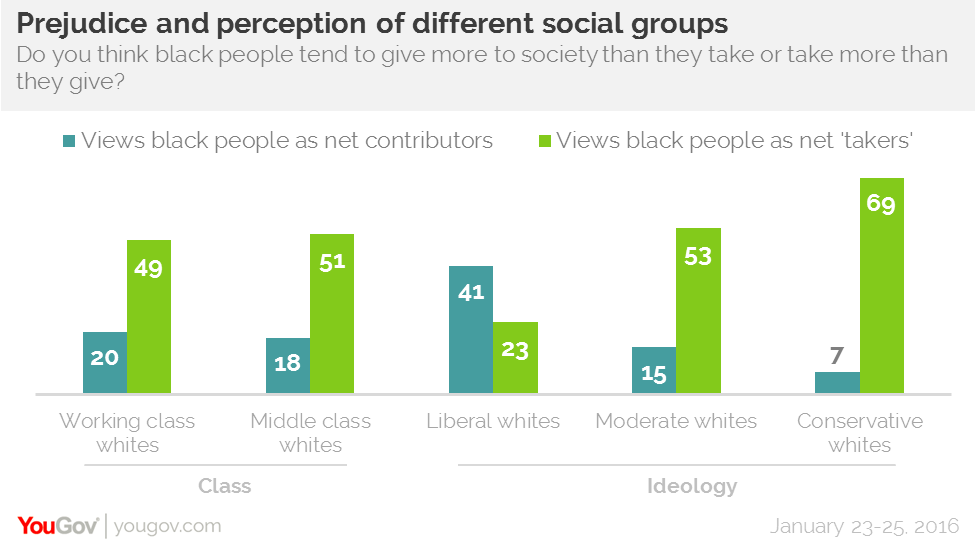 Dumbledude, on 30 January 2016 - 04:09 AM, said:
Dumbledude, on 30 January 2016 - 04:09 AM, said:
I'm sure Terez can supply a lot more detail/nuance if she feels like it, but that's the short answer.
I feel like I say the same things over and over in cycles as this thread goes on, year after year. I should probably hit one of my regular topics to clarify the issue, though.
Southern Democrats, once officially called Dixiecrats (when Strom Thurmond challenged FDR for the Democratic nomination), are still a thing. Barely. That's part of what makes party politics in the US so confusing.
Lincoln was the first Republican president. Obviously, if he were alive today he'd probably identify as a Democrat. During his lifetime, though, the Democratic Party was dominated by the southern Democrats who opposed the emancipation of slaves and seceded from the Union to avoid it which, as we all know, began the Civil War.
After Lincoln's death, the former Confederate states had to be Reconstructed into the Union. This was theoretically about making it safe for freedmen to live free. In practice it was messy, as most things are, and the methods weren't always the best suited to the goal. (Why mention this? Well, because
Hillary did, as we discussed a few pages back, and because it's relevant, though Hillary certainly blundered when she equated Southern bitterness over this fact to Jim Crow.)
Obviously, the South never really gave up on their Civil War ideals; they only surrendered because all of their menfolk were dying. There were some who embraced reality and the change that came with it, but most of them remained bitter and ideologically opposed to emancipation. They believed that people in the north would not have coped much better with the situation, and in fact they did not cope well when the Great Migrations of freedmen to northern cities began, so the South very much resented their status as chastened traitors.
Eventually the former Confederate Democrats were able to reassert their power in the party and in Congress, and Reconstruction came to an end without any real infrastructure in place to maintain its goals. And so southern whites reasserted their power over black people still living in the South (which was most of them) and instituted Jim Crow laws along with a healthy dose of domestic terrorism to keep the former slaves in their place as second-class citizens (a generous descriptor). Wage slavery and outright theft were common. More and more former slaves and descendants of slaves trekked north, but even today, there are more African-Americans residing in the former Confederate states than outside of them. The vast majority of those who live outside the South are concentrated in and around the biggest cities.
This Jim Crow reality went on for decades until the Civil Rights revolution of the 50s and 60s, which many living people still remember. My parents, both of whom were raised in Mississippi, were still in school when schools were integrated. Mississippi has the highest black population of any state in the US, so this was a very big deal. We were always kind of the backwater of the Confederacy (though this term fits Louisiana better). We have the lowest population; we're the poorest of the former Confederate states, and even Alabama is a rung or two higher on the ladder in many ways. (They have bigger cities.)
Civil rights reforms were not passed in Congress on party lines. Southern Democrats and Republicans voted against it. Northern Democrats and Republicans voted for it. But two things in particular contributed to the impression that it was Democrats who made it happen: 1) The president, LBJ, was a Democrat, and he was following his Dem predecessor JFK's lead in pushing for civil rights; and 2) more non-Southern Republicans voted against civil rights reforms than non-Southern Democrats, and one of thoseóBarry Goldwater, who opposed the CRA on libertarian principlesóbecame the first Republican candidate for president to garner significant support in the Deep South. He ran
against LBJ in 1964 and lost.
I believe both Ron and Rand Paul have at some point publicly voiced opposition to civil rights reforms (and the CRA specifically) on the same libertarian principles as Goldwater, though most Republicans have long since stopped arguing along those lines.
Goldwater's nomination represented the first attempt by the Republican party to woo Southern voters. They recognized that the South felt betrayed by its own party, and they capitalized on that feeling of betrayal by nominating Goldwater. It worked, but that was only the beginning. It has taken decades for white Southerners to become ideologically pure Republicans. The state legislatures in Mississippi and Alabama and across the Deep South only became Republican-majority within the last 10 years, as some of the last Dixiecrats were ousted. Many local positions are still held by Dixiecrats.
Nixon is often credited for the implementation of the
Southern Strategy whereby white southerners' bitter racism was capitalized upon for political gain. What's significant about Nixon's era is that this is when long-standing Republican principles of classical economic liberalism and/or neoliberalism became appealing to poor southern whites. They could identify with Republicans not only because the Democrats had betrayed them, but because the socialist-leaning policies of the Democratic Party which once benefitted them were now benefitting the poorest of the poor: the descendants of slaves who had been systematically denied access to wealth for their hundred-year history as free men and women.
Jimmy Carter won the presidency after Nixon primarily through a coalition of recently-enfranchised black voters in the south and old Southern Democrats whose feelings of loyalty to the Party were stronger than their racism. (That is an oversimplification, but I think it's generally accurate.) But by the time Reagan came around, most southern whites were fully and permanently on board in terms of presidential elections. They were convinced that all social welfare policies and public economic stimulus were simply enabling lazy black people to live off white people's hard-earned money. Reagan did not hesitate to propagate this myth.
This philosophy became popular not only in the former Confederacy, but all across the country where working-class whites were the dominant culture. I live in a solidly blue state now, but I live in a Republican district. If you look at an electoral map of IL by district or county, you might be forgiven for thinking it was a red state, but the blue districts and counties around Chicago are densely populated. It's not just black people in Chicago who vote Democrat, though they definitely do; white people who live in cities are more likely to identify as liberal, too. And even in corn country, white people are more likely to identify as liberal than they are in the South; even in Republican districts like mine, Democrats get votes, and unlike in the South, where almost all Democrats are black, here in corn country they're more likely to be white because there aren't very many black people outside Chicago.
Bill Clinton was elected governor of Arkansas as a Southern Democrat. That's a big reason why Hillary's position record is sketchy when it comes to issues important to black voters. Hillary's background as a
Goldwater Girl and some-time Republican staffer probably made it very easy for her to transition into a Southern Democrat as First Lady of Arkansas, and to help Bill transition into a
New Democrat whereby these fears among white voters about criminal and dependent black people were assuaged. President Clinton was tough on crime; President Clinton embraced welfare reform; President Clinton was able to woo Wall Street donors. Otherwise he probably would never have been elected president.
So, what is a redneck? The term tends to primarily be associated with the Deep South, particularly the rural South. It's associated with the southern accent, with big trucks and mud-riding and hunting and fishing and football. It's associated with country music, which features many of those things. But country music is popular in many white-dominated areas in the north, too. There was an Air Force guy from NY who was stationed in Biloxi and who frequented my place of employment for some time; I remember being surprised back then (10-15 years ago) that he had always been a fan of country music. Now that I live in rural IL, I understand a little better. The rural, white North is not much different from the South. Not long after I moved up here I saw a big-wheel truck with Confederate flag paraphernalia on it.
Rednecks are everywhere, and the Confederate culture of the South appeals to them no matter where they live. And they vote Republican no matter where they live, assuming they actually vote. They vote Republican for the same reasons: religion and racism. And the rise of Trump makes it clear, if it was not clear before, that racism is the stronger of those two motivations, in general, and probably always has been. Fox has been race-baiting for its entire existence. And God-baiting. And gender-baiting, which is now biting them in the ass with the Trump vs Megyn Kelly battle.
 Terez, on 29 January 2016 - 06:35 PM, said:
Terez, on 29 January 2016 - 06:35 PM, said: HoosierDaddy, on 29 January 2016 - 06:16 PM, said:
HoosierDaddy, on 29 January 2016 - 06:16 PM, said:
 Help
Help


















